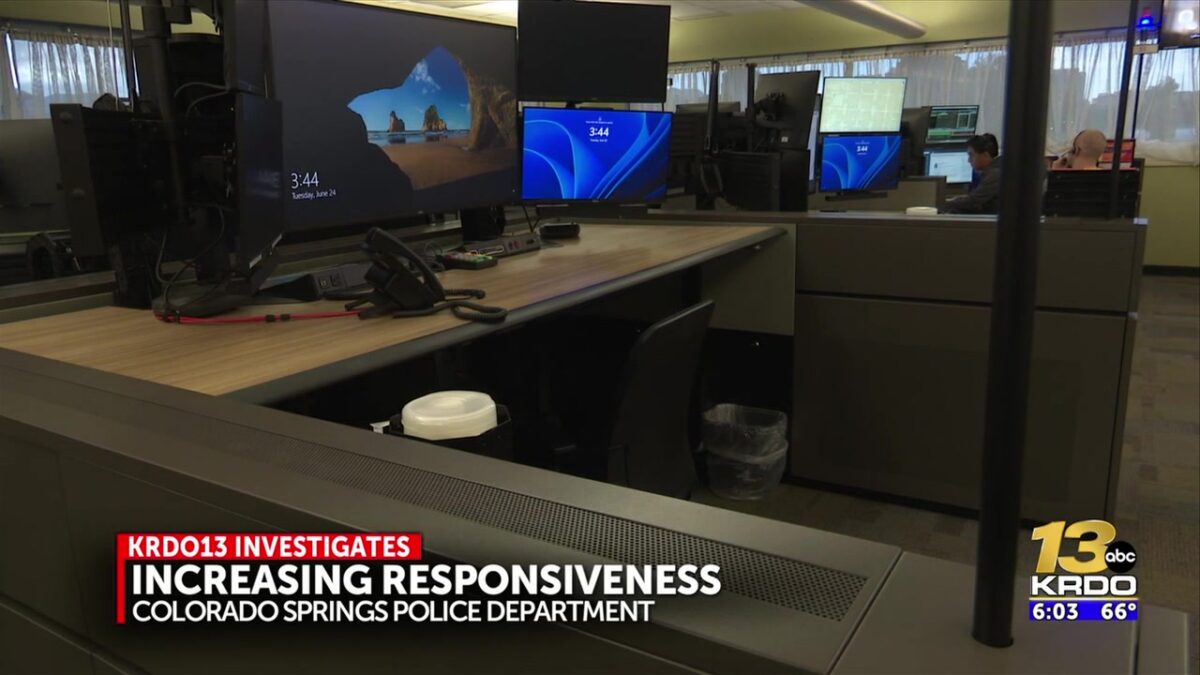Colorado Springs Police 911 call center shortens call pick up times significantly, year over year

Emily Coffey
COLORADO SPRINGS, Colo. (KRDO) – The Colorado Springs Police Department is working on reducing how long it takes for people in real emergencies to get the help they need.
Over the past two years, KRDO13 Investigates has highlighted two roadblocks to people in emergencies: pick-up times when people call 911, and how long it takes an officer to get on scene to a crisis.
Right now, it takes 13.5 seconds, on average, for a 911 caller to connect to a call-taker, and 11 minutes and 37 seconds for an officer to respond to a priority one call. Last year, it took 27 seconds on average for a person to get connected to a call-taker, and over 23 minutes on average for an officer to get to a priority one call.
Richard Suarez, the Coordinator for the Communications Department, says that dispatch being fully staffed is the reason call-takers can answer more quickly.
“It’s been a really concerted effort over the last few months to really keep our staff,” Suarez said.
The operations center also announced a new partnership with 988 Colorado for non-emergency mental health calls. If a caller is not threatening to hurt themselves or someone else, dispatchers will stay on the line with a call-taker so resources can be directed their way.
“It’s the little things. It’s pieces. Just a tool in our toolbox to reduce some of our volume,” Suarez said.
Another way Colorado Springs police are trying to increase efficiency is by adding a new online reporting tool for property crimes, scams, or other non-emergency crimes that do not require an officer to come out.
The tool, located on the city’s website, will allow people to make an online report, which is later validated by a police officer. The validated report will be reviewed and then sent back to the person who made it, so they can use it for insurance purposes or have records.
Deputy Chief Jeff Jensen says he thinks this tool will reduce the overall time each officer spends on lower-priority calls, so they can redirect efforts appropriately.